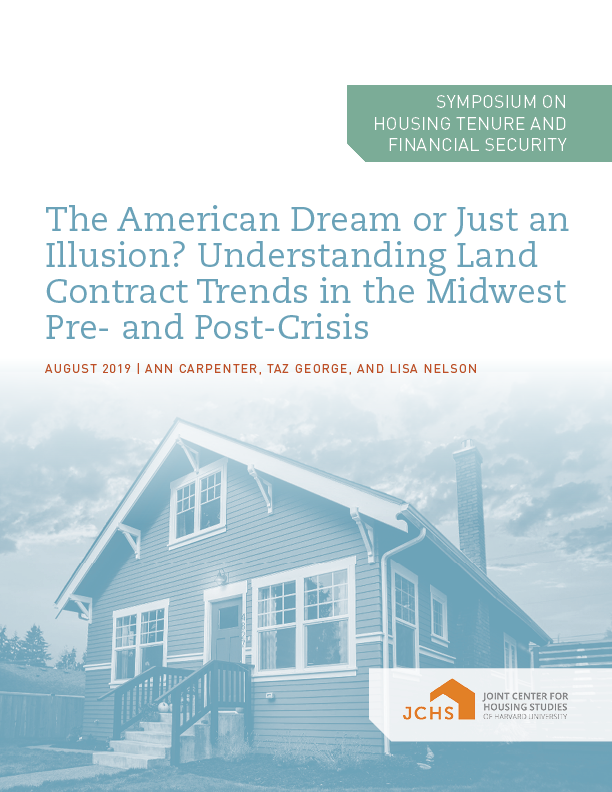The American Dream or Just an Illusion? Understanding Land Contract Trends in the Midwest Pre- and Post-Crisis
This paper examines contract for deed activity across six Midwestern states to improve our understanding of this market and the places in which this activity occurs. Using contract for deed transaction data from ATTOM data solutions and block group level data from the Census, we examine neighborhood characteristics where contract for deed activity is prevalent and assess the differences between contract for deed sales and mortgaged sales on select transaction characteristics. We find contracts for deed tend to be more concentrated in neighborhoods with lower incomes, higher shares of non-white residents, higher rates of vacancy, and less access to traditional mortgage credit. When compared to mortgaged sales, contracts for deed are more likely to be entirely financed and have sales prices that fall below mortgaged sale prices. The strongest findings from this analysis indicate that contract for deed activity varies greatly by area and tends to concentrate in communities with weak housing market indicators.
This paper was originally presented at a national Symposium on Housing Tenure and Financial Security, hosted by the Harvard Joint Center for Housing Studies and Fannie Mae in March 2019. A decade after the start of the foreclosure crisis, the symposium examined the state of homeownership in America, focusing on the evolving relationship between tenure choice, financial security, and residential stability.

